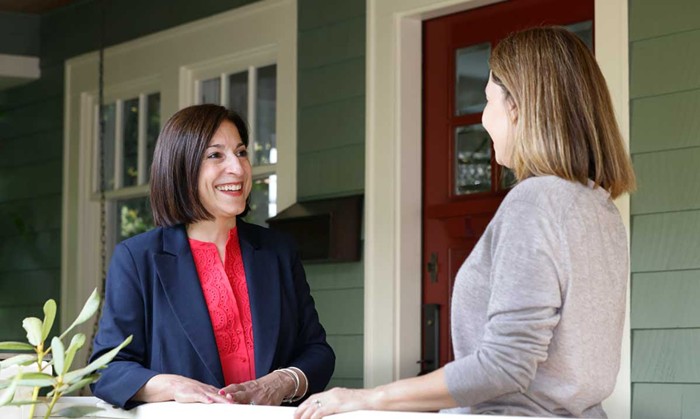This guest post is by Pete Holmes, the Seattle City Attorney, whose office will argue the case on February 28 before King County Superior Court Judge Dean Lum.
With videos of SPD actions gone viral against the backdrop of a Justice Department investigation, now hardly seems the best time to file a lawsuit in response to a Public Records Act (PRA) request by lawyer James Egan. It’s important to understand, however, that accountability and transparency aren’t the only values at stake in Mr. Egan’s request for 36 dash-cam videos from the patrol cars of four Seattle police officers. Washington’s Privacy Act requires me to safeguard the privacy and other significant rights of the individuals recorded in those videos—and none of them are represented by Mr. Egan. My decision to file a declaratory judgment action on January 3 simply seeks court guidance on how to reconcile these two conflicting state laws.
The City of Seattle is caught between the proverbial rock and a hard place: the PRA (RCW Ch. 42.56), which mandates broad disclosure of public records such as dash-cam videos, and the Privacy Act, (RCW 9.73.080 (2)), which makes it a crime to wrongfully disclose copies of such recordings. And this conundrum isn’t unique to Seattle. Any law enforcement agency in the state could find itself in the same situation. Fortunately, the PRA authorizes any public agency to file a declaratory judgment action to obtain a court’s guidance when faced with this sort of dilemma, and that’s what I’ve done in this case.
I have just two goals: to make sure the city complies with the law, and to minimize potential cost of liability that would ultimately be paid by the City’s taxpayers. While Mr. Egan was named as the defendant in the declaratory judgment action in King County Superior Court, my office is only seeking judicial guidance, not monetary damages or attorney fees. I acted only after Mr. Egan demanded that SPD produce the videos and, brushing aside our valid concerns, threatened to sue us if we didn’t give him exactly what he wanted. Mr. Egan doesn’t have concern himself with the potential impact on the people recorded in these videos, but I do.
The kind of videos Mr. Egan requested are so-called “tagged” videos. These videos are tagged precisely because they are expected to or are likely to lead to litigation. (SPD’s entire patrol car fleet of approximately 275 cars has been equipped with in-car dash cam video and sound recording equipment since 2007.) And while the city willingly distributes copies of these videos to the recorded subjects and their attorneys, Mr. Egan chose to ask for them for his own undisclosed purposes—not for identified subject clients—under the PRA.
That’s where the Privacy Act comes into conflict. RCW 9.73.090(1)(c) says, “No sound or video recording made under this subsection (1)(c) may be duplicated and made available to the public (writer’s emphasis) by a law enforcement agency subject to this section until final disposition of any criminal or civil litigation which arises from the event or events which were recorded.”
The Public Record Act’s emphasis on transparency is an effective tool for police accountability. The Privacy Act, on the other hand, furthers not only the right of privacy expressly stated in Washington’s constitution for people who encounter police in a wide variety of circumstances; it also limits public distribution of the recordings until the subjects have had a chance to fully and fairly resolve criminal and civil litigation. Since video and audio recordings are always available to the people recorded, accountability is thus assured while privacy is protected.
Without the Privacy Act, imagine these scenarios in which videos could be widely disseminated over the internet or other media:
1. A young man suffering a psychotic episode erupts in rage on the street, and a passerby calls 911. Although a danger only to himself, and ultimately he is successfully treated to become a fully functioning human being, the video of the encounter with officers follows him throughout his life as he seeks housing and employment.
2. Someone calls 911 when neighbors hear a man and woman arguing loudly. When officers arrive, their dash cams catch the half-clothed woman as she flees the house.
3. A gay college student is a witness to a minor altercation outside a nightclub popular with gays. He has not come out to his parents who see the video.
The Privacy Act limited public disclosure of videos because of the impact it could have on litigation. Once the public has seen a video, everyone is a “witness” to what was recorded – even if the video hasn’t captured the entire incident or it has been heavily edited.
I believe in transparency. I believe in accountability. And I believe in the other rights of every Washingtonian, including privacy and the right to fair trials. My declaratory judgment action properly seeks court guidance on how to balance these considerations so that the city isn’t damned if it does, and damned if it doesn’t.


















